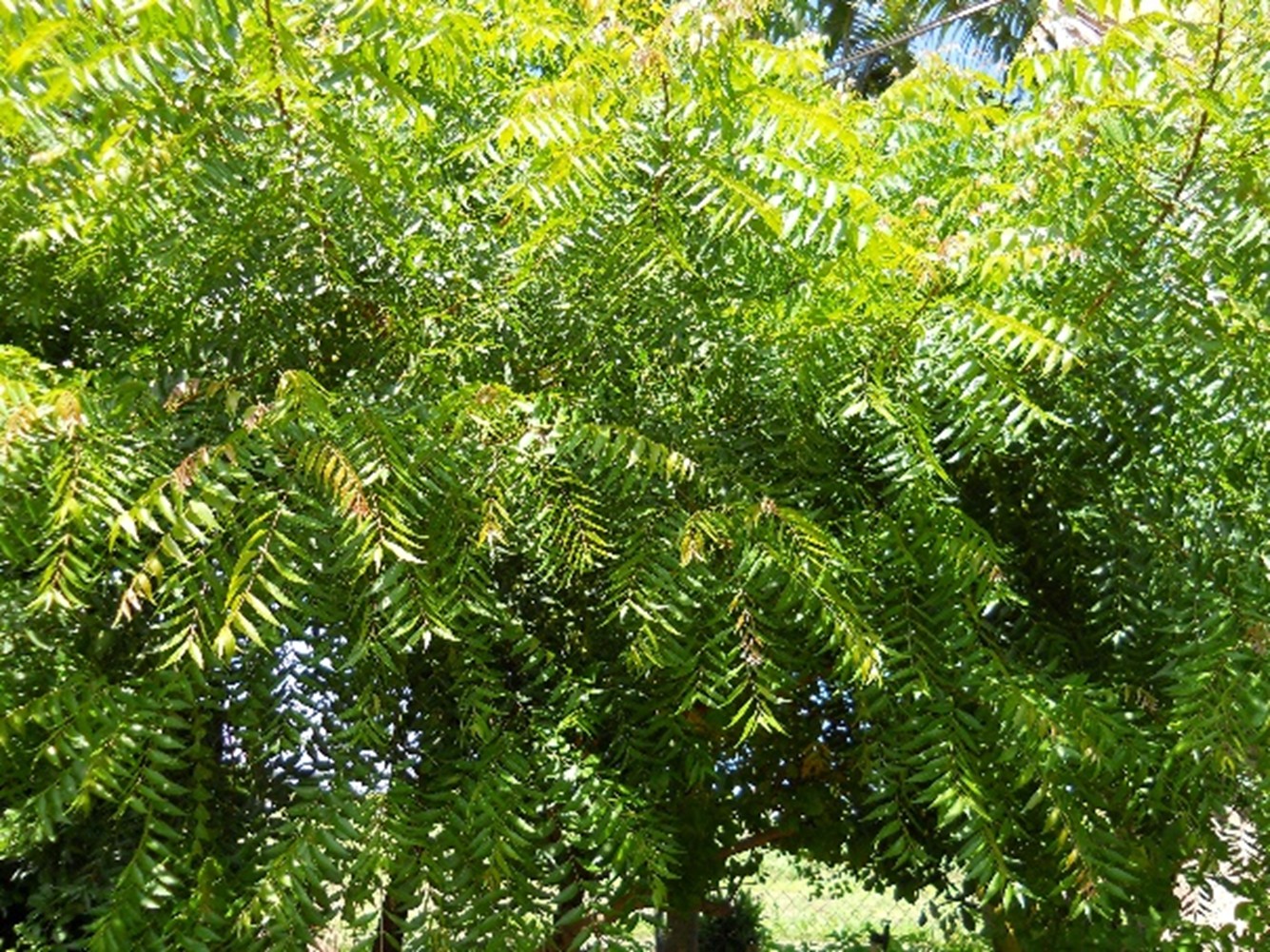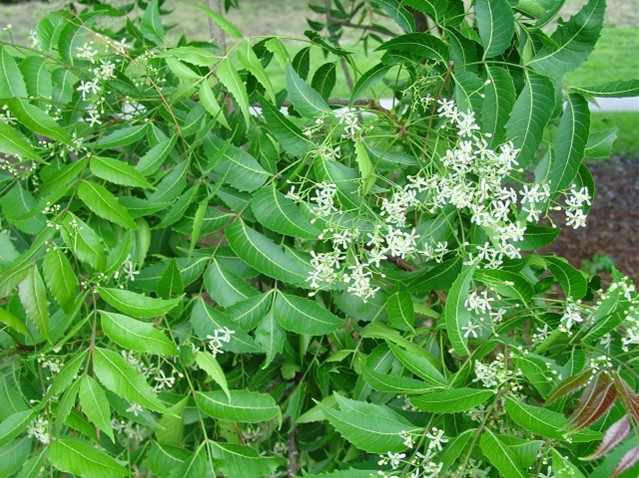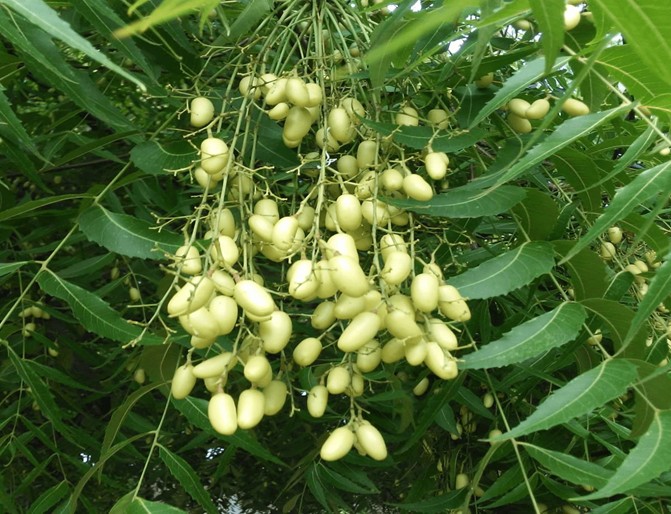Azadirachta indica , A.Juss.
Azadirachta indica, commonly known as neem, is a versatile and widely used tree native to the Indian subcontinent. Neem is a highly valued tree in traditional medicine, agriculture, and environmental management. Its diverse applications make it a staple in many cultures, particularly in South Asia. Always consult with a healthcare professional before using neem for medicinal purposes.
Botanical Information
- Family: Meliaceae
- Synonym: Melia azadirachta Linn.
- Common Names: Neem, Indian lilac, Margosa
- Tamil Name : “veppam” (வெப்பம்)
- Malayalam Name : “veppu” (വെപ്പ്)
- Height: Typically grows 15-20 meters (49-66 feet).
- Leaves: Pinnate, with a glossy appearance, and a strong, distinct aroma.
- Flowers: Small, white, fragrant clusters.
- Fruit: Yellowish-green drupes containing seeds.
Uses
- Medicinal Uses
- Antimicrobial: Neem has antibacterial, antifungal, and antiviral properties, making it useful in treating infections.
- Skin Health: It is used to treat skin disorders like acne, eczema, and psoriasis.
- Anti-inflammatory: Neem helps reduce inflammation and is used in various topical treatments.
- Dental Health: Neem extracts are often found in toothpaste and mouthwashes for their dental benefits.
- Agricultural Uses
- Pesticide: Neem oil is a natural pesticide effective against various pests and insects without harming beneficial species.
- Fertilizer: Neem cake (residue after oil extraction) is used as an organic fertilizer.
- Cosmetic Uses
- Skincare Products: Neem oil is included in soaps, creams, and lotions for its healing properties.
- Hair Care: Used in shampoos and conditioners to promote scalp health and reduce dandruff.
- Environmental Uses
- Air Purification: Neem trees can improve air quality by absorbing pollutants.
- Soil Improvement: Their deep roots help prevent soil erosion and improve soil fertility.
- Culinary Uses
- Edible Leaves: Young neem leaves are sometimes used in cooking, particularly in traditional Indian dishes, for their bitter flavor and health benefits.


